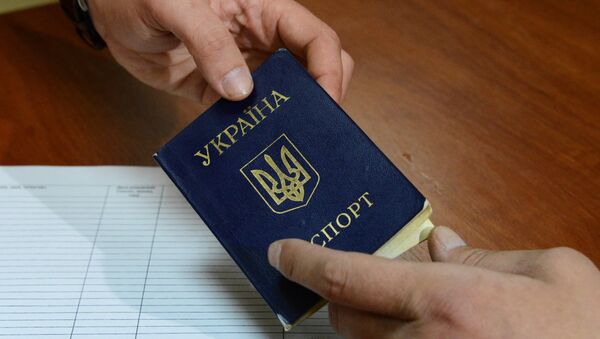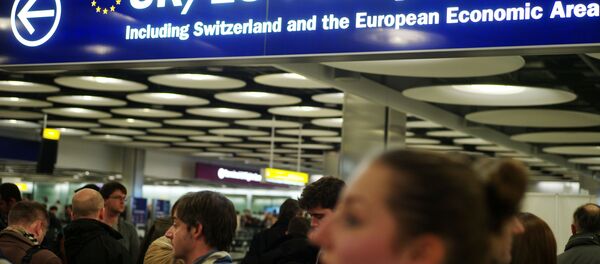Reuters confirmed late Thursday that the supranational bloc's member nations had 'conditionally agreed' to waive visa requirements for Ukrainian citizens. Visa-free travel to Europe has been one of the key promises of the Ukrainian government that came to power following the Euromaidan coup d'état which took place in February 2014.
Last month, Ukrainian President Petro Poroshenko vowed that the European Parliament would sign and ratify the documents establishing a visa-free regime between Ukraine and the EU before November 24, when the EU-Ukraine Summit is set to take place.
But there's a hitch. According to a separate Reuters report released Friday morning, the word 'conditional' in 'conditional agreement' means that actually implementing the deal will first require further negotiations between EU member states, the European Commission and the European Parliament. This includes negotiations on the creation of a mechanism which would allow Brussels to suspend the bloc's visa-free agreement with any country in case of an emergency.
It's unclear at this point how long those talks may take, but there are signs that Brussels was aware all along of the likelihood of further delays, given that the draft agenda of its upcoming summit in Strasbourg makes no mention of granting Ukraine the coveted visa-free status.
According to Ukrainian statistic's portal Ukrstat, the country's average salary is only 4,350 hryvnia, or about €160 euros. Independent Ukrainian journalists including Anatoly Shariy have pointed out that with this kind of money, Ukrainians would be able to stay in an average European hotel for about a day and a half.
At the same time, the country is bogged down in a brutal civil war, which engulfed its eastern regions of Donetsk and Lugansk in the spring of 2014, raising questions about the possible flow of arms and battle-hardened nationalists into Europe if the visa regime was abolished. In June, at a closed-door meeting of EU interior ministers, German and French officials warned of the danger posed by Ukrainian and Georgian criminal gangs coming into Europe, and urged the creation of legal measures which would allow Brussels to suspend visa-free travel agreements with any third country if necessary.




